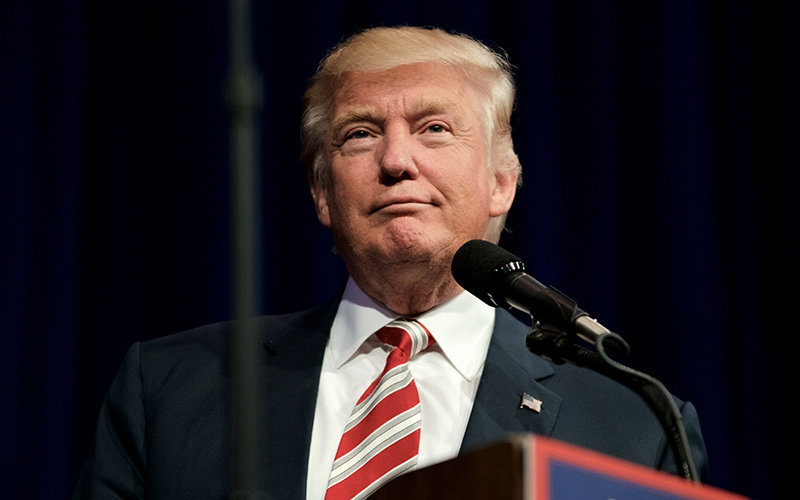
Seasoned associate professor of political science Scott Spitzer said the immediate impact of Tuesday’s presidential election was sobering.
He walked into a full “Introduction to American Politics” class on Wednesday. The lecture hall where usually 20 to 30 seats are vacant on a given day, was filled with 200 stunned students.
“They were quiet and attentive, wondering how to make sense of this,” he said. “Most were upset. Some were crying; others were smiling — but they were clearly in the minority.”
Donald Trump’s stunning upset of Hillary Clinton to clinch an electoral vote majority early that same morning dealt a devastating blow to Democrats and young voters.
“Students were wondering if Trump was serious about mass deportations, if he’d successfully reverse the Supreme Court decisions on same-sex marriage and abortion, whether his campaign talk about nuclear weapons meant that we might face a nuclear war, if we would enter another ‘Vietnam’ in a fight against ISIS, and what would happen with Obamacare,” he said.
Spitzer and other faculty experts who study and teach politics, American history and communications, were called upon immediately to discuss how Clinton was blindsided by a “surge of white working and middle-class voters, without a college education, in the rustbelt states that have been solidly Democratic for three decades.” Associate professor of political science Sarah Hill spent seven hours on air at KTLA 5 News Tuesday night, analyzing voter response.
And the conversation continues. Spitzer; Matthew Jarvis, associate professor of political science; Robert Robinson, assistant professor of political science; and student leaders of the political parties and the political science honor society will offer post-election analyses from 5 to 7 p.m. Monday, Nov. 14, in the Titan Student Union. Stephen Stambough, professor of political science, will moderate the panel sponsored by Pi Sigma Alpha, CSUF Democrats and the Division of Politics, Administration and Justice.
Jarvis, Spitzer and Stambough, plus Robinson as moderator, will participate in a roundtable discussion Wednesday, Nov. 16, at the Fullerton Public Library. The free 7 to 9 p.m. event in the library’s Community Room will focus on “what happened, what does it mean, and what comes next?” Campus and community members are welcome at both events.
As anti-Trump protests break out across the map, many in the nation question how each party can unite its own constituents, and now the focus shifts to studying whether the two parties will work together in transition and beyond.
“The two parties won’t be unified. They truly have different priorities and beliefs,” Stambough said. “There can be a return to loyal opposition and peaceful coexistence, however. That will take some outreach by the GOP to the Democrats to not overplay the GOP’s hand. It will be hard for the Democrats because they believe the GOP never accepted President Obama as president and might believe that there is no reason they should behave any differently to President Trump.”
As for Clinton and her running mate, Tim Kaine, Spitzer expects “great things” yet to come from Clinton — internationally, for women and for education, especially through the Clinton Foundation.
“She will remain very active — possibly hand-in-hand with the Obamas — to offer world leaders a different face on foreign affairs: much as Jimmy Carter did during the George W. Bush presidency,” Spitzer said.
Sen. Kaine will return to the capital. “He’s got a lot of work to do with his Democratic minority allies in giving a strong opposition to the Trump agenda,” Spitzer added.